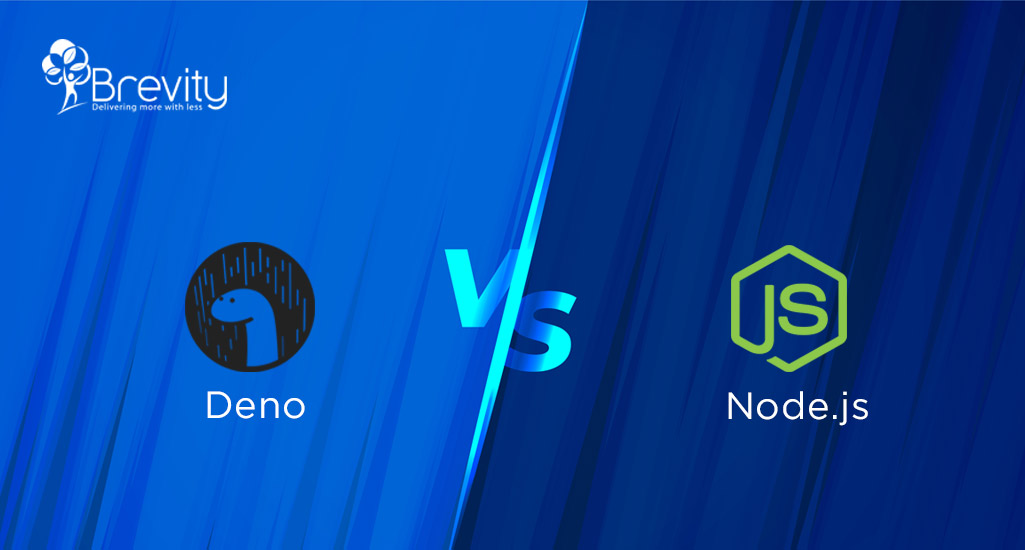
Introduction
Recently, the Deno v1 has released and it is making a buzz! Many declare Deno development to be the end of Node.js. Although at the moment, it looks like an overstatement. The comparisons will certainly happen as the maker of both Node.js and Deno is the same person named Ryan Dahl.
What is Deno?
Deno is the runtime for JavaScript development and TypeScript depending on the V8 JavaScript engine as well as Rust programming language.
Benefits of Deno
- It has a built-in dependency inspector as well as a code for the matter.
- It is a well-designed module system where security is a focal point.
- It ships a sole executable.
- It supports TypeScript out-of-the-box.
Why Deno Development is Creating News?
Safety
Node.js permits smooth access covering file systems, environment variables, outgoing requests, etc. However, it is a privilege to get such access, you also have its flipside. This unobstructed access opens up an entire world of threats during the coding process or Frontend technologies development.
Deno offers command-line flag ‘–allow-net’ to give access to various external permissions for the script.
Deno utilizes command-line arguments to disable or allow access to various security characteristics.
It gives code for reading from a folder, providing a safety exception.
It works as a part of the command line executing the script, giving required permissions for code.
Unless mentioned clearly and or else, Deno won’t delete files from the program without permission. Safety is the key point of Deno. So, it won’t be possible to access your hard drive or implement any potentially mean actions without your permission.
Package Management
Node.js offersNPMfor managing your packages. Although, Deno allows you to openly install the packages from URLs or directly utilize them by importing the packages as a library in the URL script.It removes the ‘package.json‘file for organizing dependencies and ‘node_modules’ folder.
It is amongst the biggest benefits of Deno. However, how does Deno organize dependencies? It is easy by permitting you to need modules from everywhere.
You don’t require to have your individual integrated repository. It is among the finest differentiators; although, it is debatable also, as importing modules from the 3rdparty resources increase susceptibility.
Standard Library
Since the initial version of Node.jsgot launched, JavaScript has sustained to evolve as well as improve the library. Instead, Deno comes with high claims of getting a complete typical library for the developers to utilize official tools for more functions as well as external libraries for difficult tasks.
Module
When Node.js was made, the standard for different JavaScript modules was CommonJS, well-supported by NPM. After that, the ECMAScript committee dignified a diverse standard, ES Modules that is well-supported by JSPM.
Deno Helps ES Modules
With Node.js, you can load CommonJS modules through the required keyword as well as all third-party and standard alike, indirectly come from the npmjs.com. With Deno, you can load the ES modules through importing keyword and openly state an URL.
Deno modules could be hosted everywhere lacking a centralized source for third-party modules and compiled and cached locally, meaning that it is not updated except asked clearly.
This typically means that you could run Deno programs available on the laptop having all imports (requires to get resolved).
Node.js Design Issues
As per Dahl, Node.js has some design problems and Deno fixes them. The main problems highlighted consist of:
- Badly-designed module system having centralized distribution
- Lack of safety
- Many legacy APIs demanding support
KeyAssociations with NodeJS
- Deno requires clear permissions for files, networks, and environment access.
- Deno will breach on unhandled exclusions that are not the case with NodeJS.
- Deno’s fundamentals are written in the Rust programming language with key emphasis on security as well as Tokio however, Nodejs was written in C++.
- ES6 import reports a reorganized approach as addiction management.
- It is not using any package managers like NPM as well as does not get package.json to do module handling.
- Typescript is a superset of JavaScript meant at eliminating different development errors prior to code execution.
- Typescript is very good for larger applications.
Can Deno Replace Node.js?
Well, it’s a tricky one and the answer is maybe or maybe not! Node.js has a huge and strong ecosystem. In contrast, Deno is in its promising stage as well as will take time for catching up.
Nowadays, Deno is a trendy new environment to build small and private scripting projects in the TypeScript. As per Dahl, Deno would never challenge the Node.js’success considering its popularity. However, once Deno gets matured it will become a practical option for making larger projects.
Conclusion
So, will Deno become successful? Well, only time will tell! At present or in the near future, Node.js is the best option.
Looking to create an efficient web application? Then contact our team!